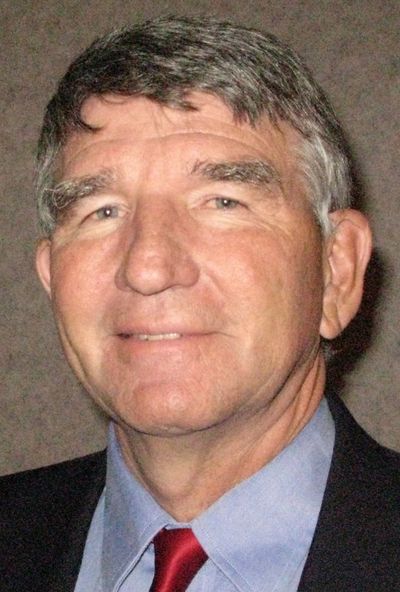WASL’s days numbered
Dorn promises replacement by next year

Washington schoolchildren may have to find something new to hate.
A week after taking office, the state’s newly elected top educator is making good on a campaign promise, saying he’ll replace the WASL. And while skeptics say the pace is impossible, Superintendent of Public Instruction Randy Dorn says he’ll make the change in time for next school year.
“Some people say that I’m moving too quickly,” he said in a news conference. “To be honest with you, we should have moved four or five years ago to what I’m talking about.”
There would still be testing. And passing an assessment – or alternative work – would remain a graduation requirement.
But Dorn says the tests he proposes would be shorter, less time-consuming, less stressful, cheaper to administer and quicker to grade than the WASL. Essay questions would be reduced from 40 percent of the work to 25 percent. The test would be taken on a computer, not on paper.
And Dorn’s tests wouldn’t be called WASL, a name despised by a generation of kids and burdened with a record of high failure rates. Instead, kids in grades 3 through 8 would take the “Measurements of Student Progress,” while 10th-graders would take the “High School Proficiency Exams”.
Dorn said he wanted names that couldn’t be turned into acronyms, as was done with the Washington Assessment of Student Learning – the test he’s on the fast-track to replace.
“No more studies. No more things to put on a shelf. We’re going to do it,” Dorn said Wednesday.
It may not be quite that simple.
For one thing, the changes would have to be negotiated with the private company that has a contract to administer the WASL for the state. Dorn brushed off that issue as insignificant.
For another, major changes in the state’s student assessment system would have to meet the requirements of the federal No Child Left Behind Act, which was championed by President George Bush. The act is up for re-authorization, with President Barack Obama and many in Congress looking for changes.
But Dorn’s biggest challenge may be persuading the Legislature to let him take unilateral action.
Many people want to see the WASL changed, including members of a bipartisan legislative work group that spent eight months studying the issue. In fact, about the same time Dorn was making his announcement Wednesday, state Sen. Rosemary McAuliffe introduced a bill to implement the work group’s recommendations – changes she says share “common ground” with Dorn’s proposal.
“This will be a collaborative process with Superintendent Dorn,” said McAuliffe, D-Bothell. “I’m looking forward to working with him to refine our state testing system to meet the needs of students, teachers and parents.”
Dorn said he consulted with members of the work group, as well as educators, the governor, parents and many others during the month he was putting together Wednesday’s proposal. And he noted that many legislators supported his campaign against the three-term incumbent, WASL-defender Terry Bergeson.
But, Dorn said, he sees no reason to wait for any bills to go through the legislative process, saying it would only slow him down. And that could put him at odds with McAuliffe, who chairs the Senate Early Learning & K-12 Education Committee.
“Look, if they want to pass a bill, that will be up to them,” said Dorn, a former legislator, principal, teacher and motivational speaker. “But I will ensure the people of Washington know that … I cannot get this done by 2010” if the Legislature gets involved.
“To pull off our aggressive timeline, we have to move forward now.”
As for federal requirements, Dorn said, “right now, we believe we have crossed every ‘t’ and dotted every ‘i’.”
Dorn said he hopes that with the changes he proposes, assessments could be administered in as little as 2 1/2 days in elementary schools and maybe less than a week in high schools.
The WASL requires two weeks in high school, with reading and writing assessments given in one session and the math and science assessments given weeks later. There’s also a one-week makeup session.
The Spokesman-Review previously reported that while sophomores were testing, other students in many schools are asked to go to places like study halls and keep relatively quiet. Upperclassmen in some Spokane schools aren’t required to be in class until late morning during WASL weeks.
Those are the types of disruptions Dorn said he wants to end.
And while the WASL takes months to grade and return to students, Dorn contends a replacement test could be done in as little as two weeks. That would give teachers time to see where students need help, he said.
Dorn’s proposals were applauded by a group called Mothers Against WASL, which for 10 years has railed against what it calls a “flawed, harmful, costly test.” Also on board with the changes is the Washington Education Association, which represents teachers and endorsed Dorn in his campaign to unseat Bergeson, and the League of Education Voters. Representatives from both those organizations stood beside Dorn during his Wednesday announcement.
Also there was Steve Mullin, president of the Washington Roundtable, a statewide organization comprised of chief executives of major employers, including Stacey Cowles, publisher of The Spokesman-Review. In November, shortly after Dorn’s election, Mullin said that his group would oppose any changes that might make the WASL “less rigorous,” even if it meant saving time or money.
At Wednesday’s news conference, Mullin spoke cautiously, saying the Roundtable appreciated being consulted on the matter, and that there’s plenty of common ground – in requiring a test for graduation, for instance.
But as far as other specifics, Mullin would say only that “I think there are potentially some parts of what he’s proposed that we may have continuing concerns about.”